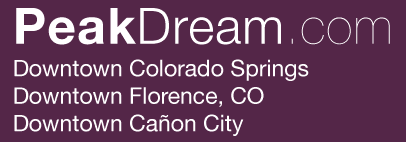
Homeowners Associations
Condos, townhomes and some other communities will have HOA (Home Owners Association) fees. If you’re thinking of purchasing a home with an active HOA, it’s important to understand the fees so you know what to expect. Although HOA’s are sometimes in single family housing communities, let’s talk specifically about condos and townhomes:
HOA Monthly Dues
These have various interchangeable terms such as regular assessments or monthly dues, but the concept is all homeowners in the association pay a fee every month to live in the HOA. Your monthly dues help with a variety of things, and change by community, but they often include: exterior maintenance (painting, roofs, decks), landscape maintenance (maintaining trees and grass, shoveling snow, repaving parking lots, pool maintenance) shared utilities (watering common areas, street lights in complex) trash service, and upkeep of common areas (clubhouses, pools, etc). Practically, this means you’re paying for the property management company to keep your complex up and maintained on a regular basis.
An important note: Your HOA has the ability to foreclose on your property if you don’t pay your HOA fees! Yep, it’s just like your mortgage – it’s a crucial payment to make every month so you don’t lose your home!
HOA Special Assessments
It’s important to know the “financial health” of your HOA. When you are under contract to purchase a condo or townhome, you have the right (per the contract) to look over HOA documents, including the financials, rules, bi-laws, and meeting minutes. Every HOA should have money in a reserve account for unforeseen natural disasters and surprises that will come along. This could be a major hail storm, fire, landslide, lawsuit or other unexpected major items that need attention. Although your HOA has an active insurance policy on the complex (usually referred to as the master policy), the deductibles can often be large sums in order to deal with the problem. That’s where special assessments are instituted: the HOA will “bill” all the owners, above and beyond their monthly dues, to acquire money to pay for these issues. Sometimes it’s a few hundred or thousand dollars, but owners are really caught off guard when it’s tens-of-thousands of dollars (and we’ve seen it happen).
The best way to protect yourself and budget for special assessments is check with your own insurance company. Even though the HOA has a commercial insurance policy on the complex, you should be carrying an individual homeowners policy for your property. On condos and townhomes, this is called an HO-6 policy and they’re typically very affordable, around a few hundred dollars per year. This policy will cover your personal possessions (similar to a renter’s policy) and personal liability if someone is injured on your property. But here’s the real key: ask your insurance company for a rider on your policy that protects you from large HOA special assessments. For a few dollars a year, you can have this coverage and only have to pay a deductible if your HOA charges you a special assessment. After your deductible, your insurance company should pay the remaining balance.
Other Fees
When selling your condo or townhome, you could be expected to pay some administration fees for the sale of your property. Here are a few common fees:
Status Letter and Record Change Fee – some HOA’s will charge an administration fee for assigning new names, information, and documents from your name (the seller) to the new owner (the buyer). This also insures that all dues and assessment are current. And, it’s negotiable in the Colorado Real Estate contract so make sure you understand who is paying these fees at the time of the offer. They are typically paid by the seller and fee amounts can vary so call your HOA or ask your Realtor for exact amounts.
Document Fee – part of your responsibility as a seller is to provide HOA documents to the prospective buyer. The HOA property management company will often charge a fee for preparing and sending these documents, even electronically. Be prepared for fees starting around $150 and going up to $500 for some associations. This is an out-of-pocket expense before closing that many sellers don’t expect so make sure you ask your real estate agent or call your HOA for the exact amount.
Remember, your HOA is an association and you are a member! It’s there to serve you and keep your property maintained and improved so that when you are ready to sell, it’s attractive and ready for prospective buyers. If you see items around your complex that need fixed, send your HOA an email (so you have documented proof that you’ve made a request). Whether it’s a security issue, maintenance item or idea for improvement, you should be involved and active in your HOA. For some residents, that means joining the HOA board to help run the association and make decision about your community. Either way, stay active and involved so you understand what’s happening in your community.




